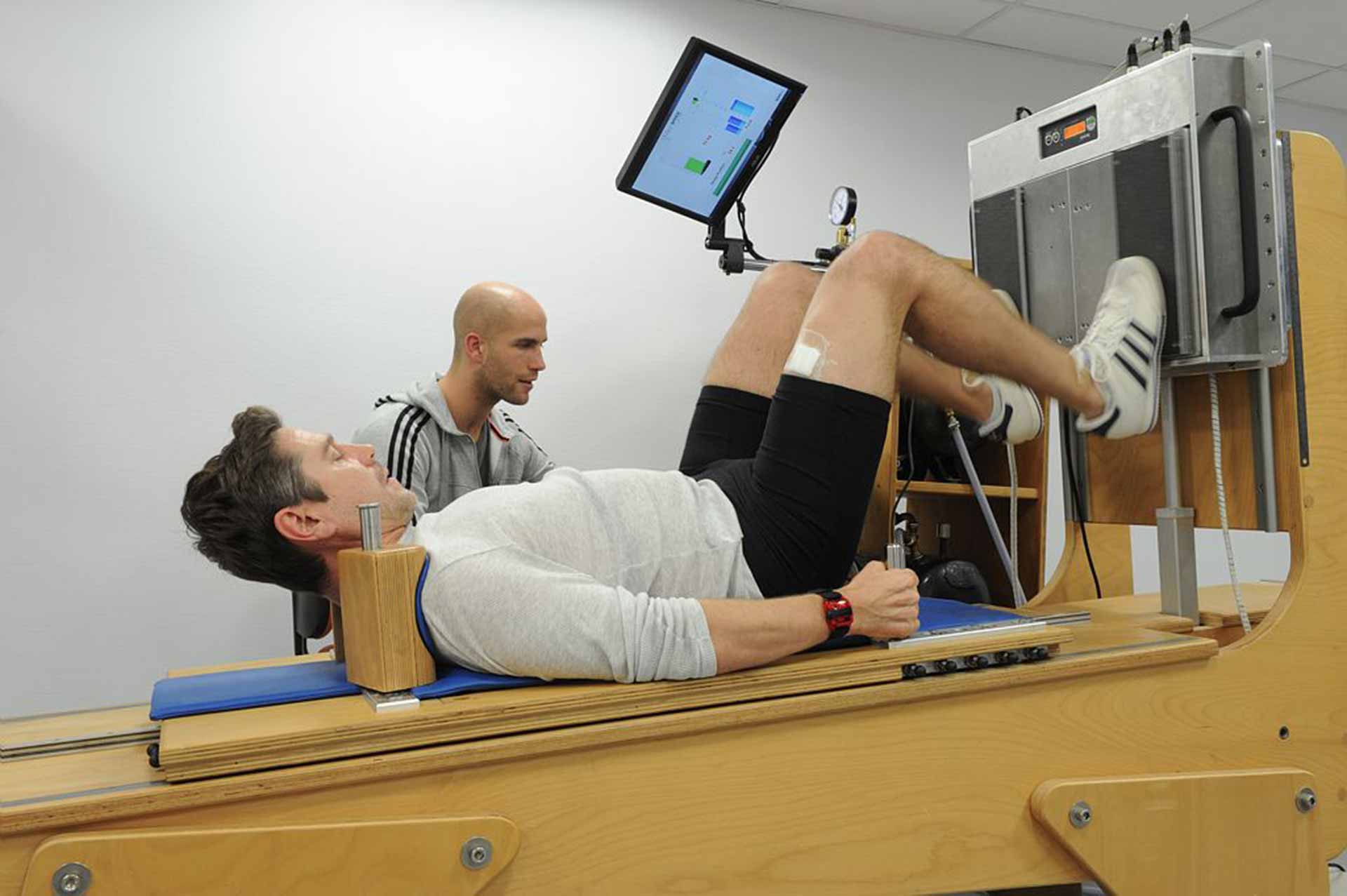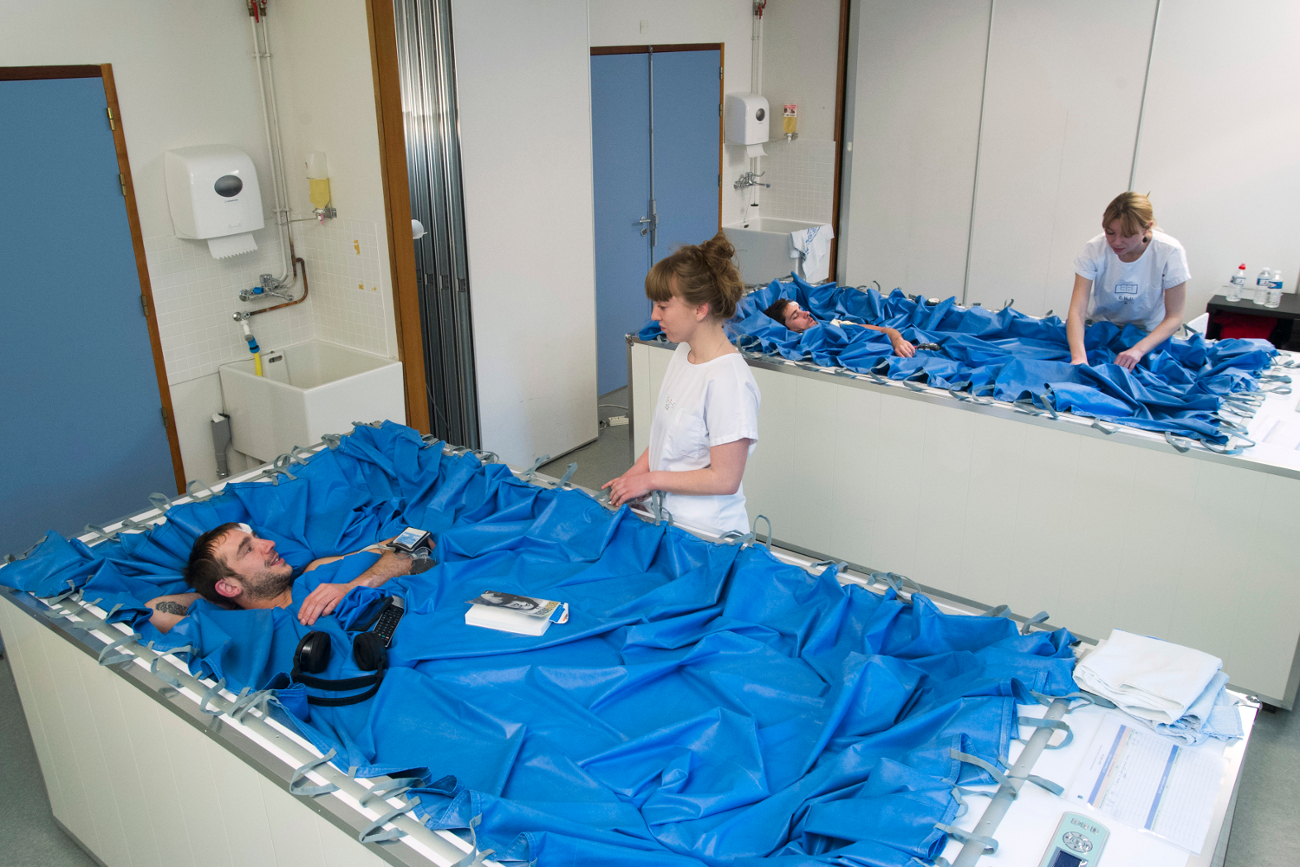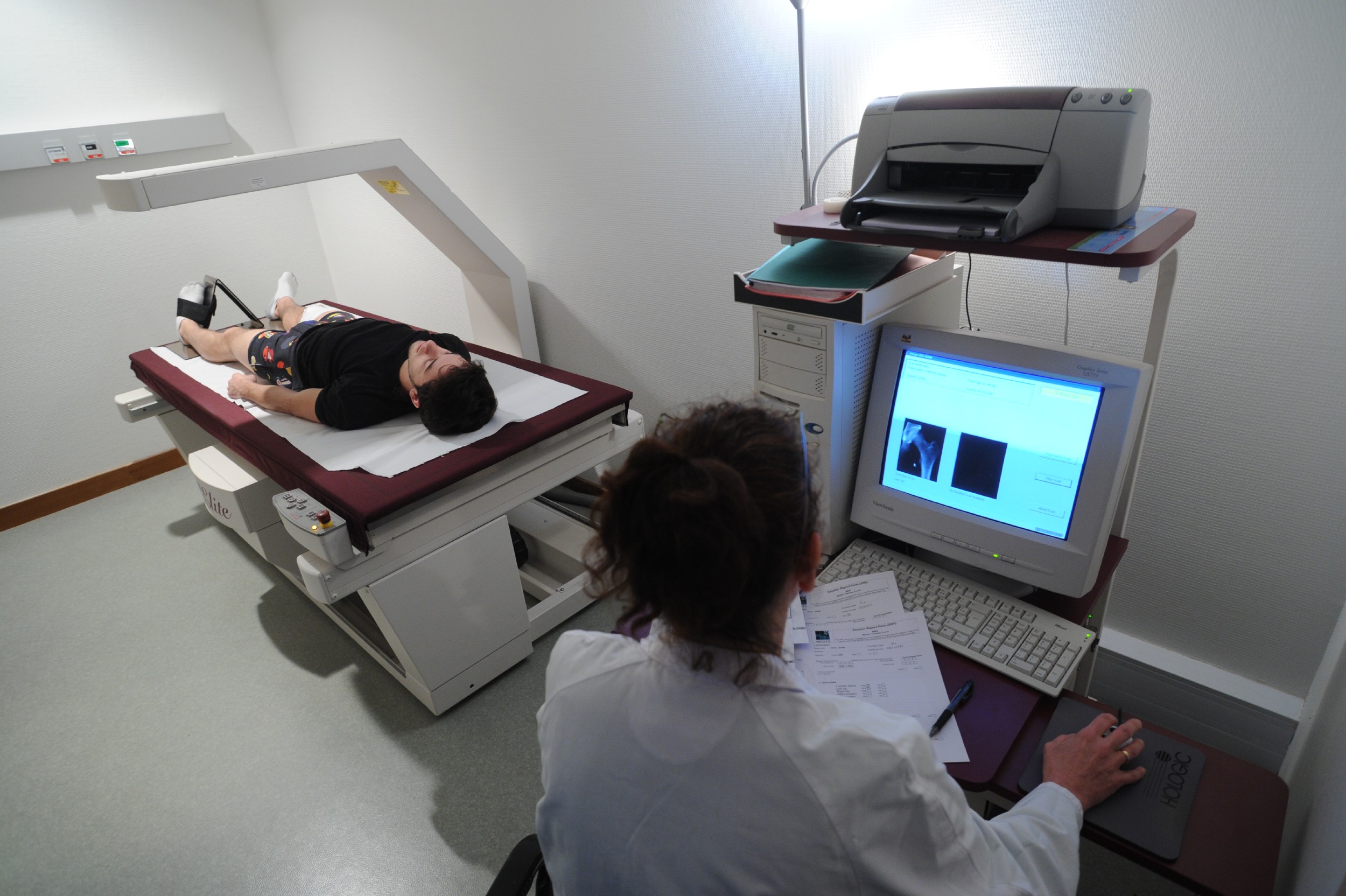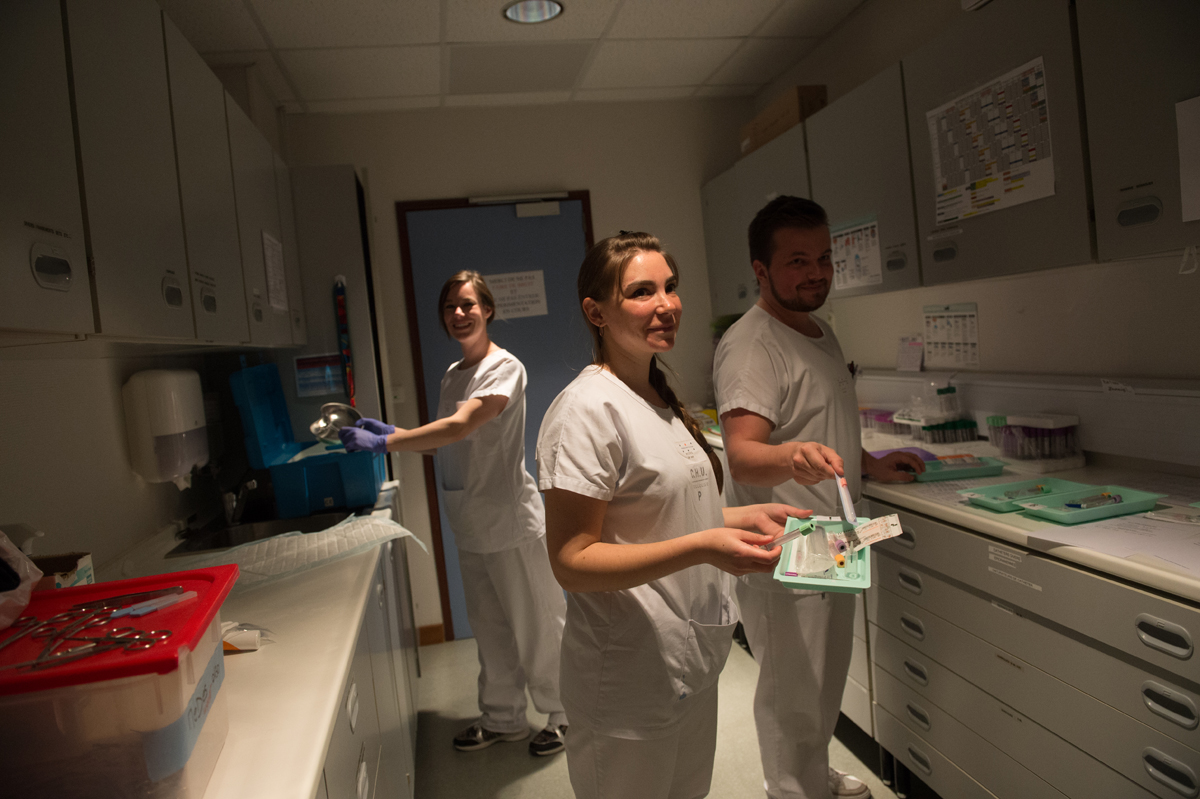Equipment
A unique infrastructure with specific equipment
In addition to its “conventional” equipment, the MEDES Space Clinic has a variety of scientific, medical and technical equipment for its space and clinical studies:
- A DEXA scanner
- An XtremeCT scanner
- A tilt table
- A flywheel
- A short-arm centrifuge
- 2 dry immersion bathtubs
- A laboratory for conditioning biological samples
- Etc…
Here are details of some of them.
Centrifuge and control room
In 2007, MEDES acquired a short-arm centrifuge. This was modified in 2022 to allow for new experimentation needs. The centrifuge is housed at the MEDES Space Clinic and is used as a countermeasure (i.e. as a preventive measure) in a number of studies.
Built under an ESA contract and with ESA’s support, it was designed and installed by the Verhaert company.
This equipment is used to evaluate the use of artificial gravity as a countermeasure for weightlessness-induced disorders.
The centrifuge is equipped with medical devices to medically monitor subjects during centrifugation sessions. Vital parameters (electrocardiogram (ECG), blood pressure, heart rate, respiratory rate, oxygen saturation, etc.) are recorded and displayed on a screen in the control room, for real-time monitoring by the doctor.
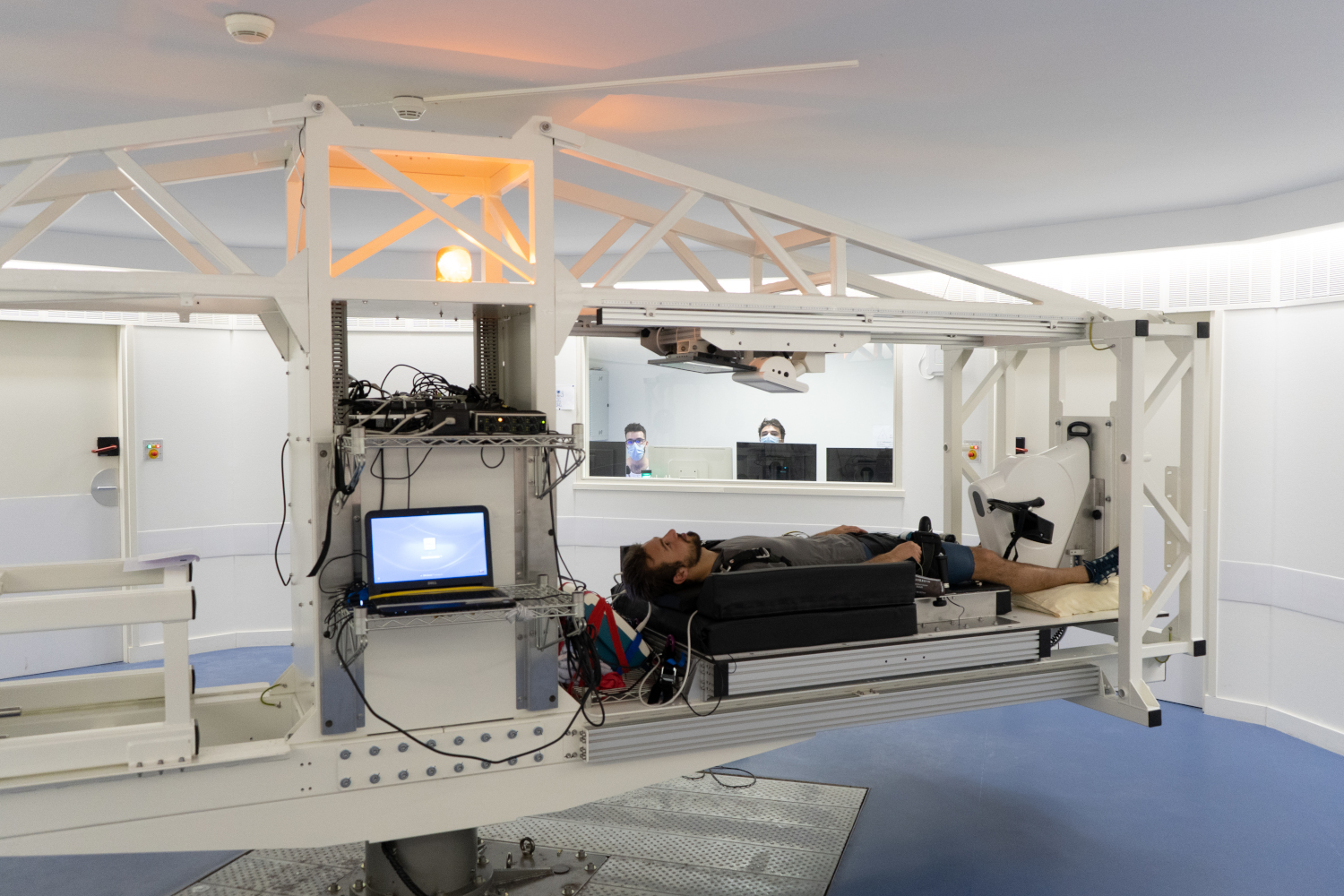
Dry immersion bathtubs
Dry immersion bathtubs have been installed in the premises of the Space Clinic in order to study dry immersion as a simulation model for weightlessness.
This model, which complements the bed rest model, has the advantage of no support. The human body interprets it as a complete absence of support, a situation comparable to that of real microgravity. In particular, the dry immersion model enables the effects of weightlessness on the sensory-motor and cardiovascular systems to be reproduced very quickly.
The immersion baths are large bathtubs filled with water and specially designed for dry immersion studies. A special elastic waterproof fabric is fixed on the outside edge of the bath.
These dry immersion bathtubs have been used in recent weightlessness simulation studies.
Scanner périphérique XTremeCT
L’XtremeCT est un scanner périphérique (3DpQCT) qui permet de mesurer à la fois la densité osseuse (volumique) et la microarchitecture osseuse. Il permet des mesures in vivo sur l’homme, au niveau du radius et du tibia, avec une résolution isotropique d’environ 100µm. Les résultats des examens XtremeCT sont une liste de paramètres de densité ainsi qu’une liste de paramètres décrivant l’architecture de l’os.
Pendant longtemps, la seule possibilité pour obtenir des informations sur la microarchitecture de l’os était d’analyser une biopsie osseuse. L’XtremeCT permet l’obtention de résultats similaires mais avec une technique non ivasive (“biopsie virtuelle”).
Il est couramment utilisé dans les études de simulation de l’impesanteur menées à MEDES. Il est également utilisé dans le cadre d’études pharmaceutiques.
A terme, l’XtremeCT pourrait permettre une détection plus précoce de l’ostéoporose ainsi qu’un meilleur suivi des effets des traitements contre cette maladie.
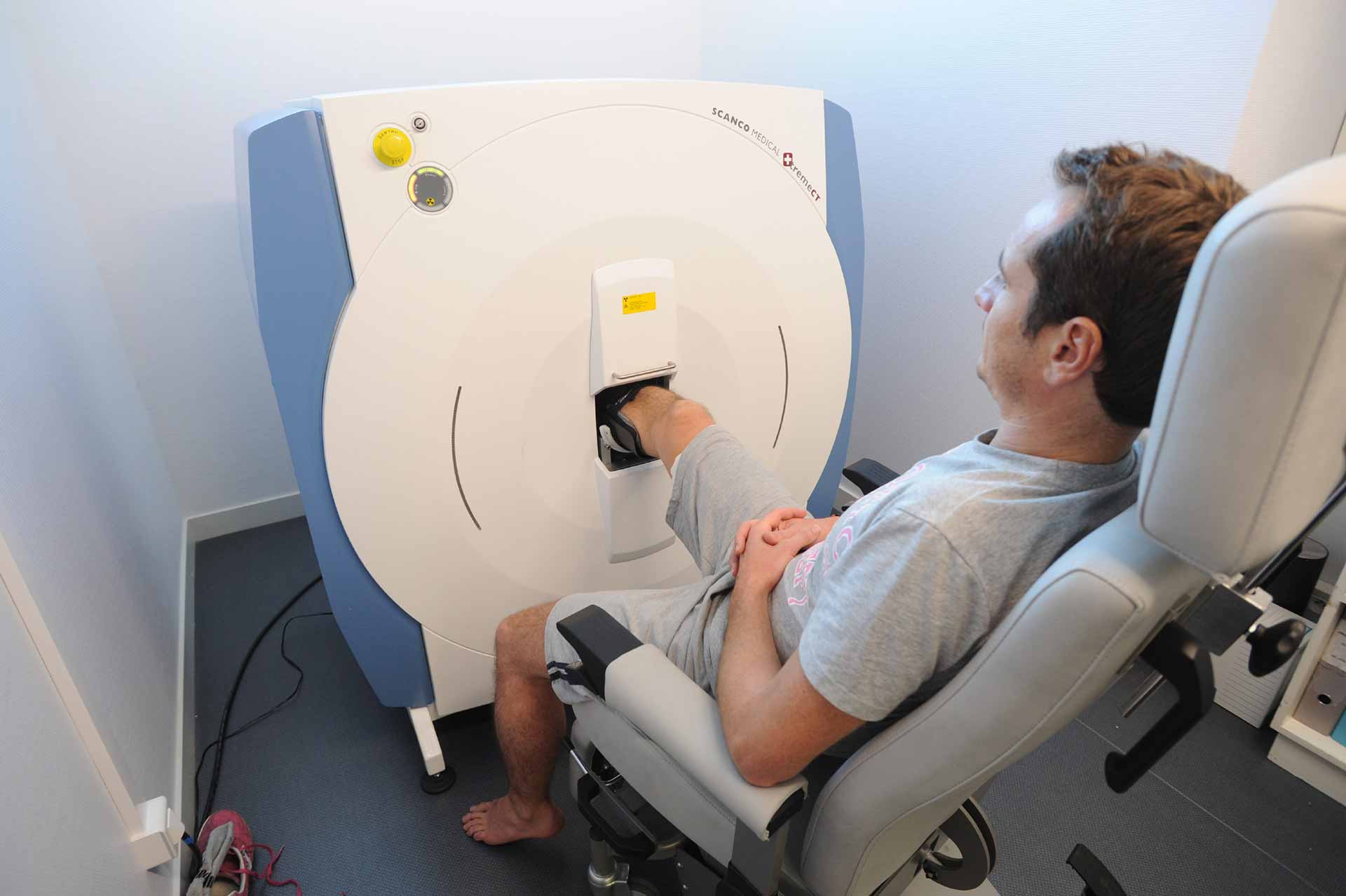
Tilt Test
The purpose of the Tilt test is to monitor cardiovascular adaptation to the upright position.
It is a diagnostic procedure commonly used to determine the cause of unexplained syncope or syncope malaise (also known as vagal or vasovagal syncope, fainting or simply “passing out”).
Used as part of our weightlessness simulation studies, this equipment also enables us to assess tolerance to the upright position before and after a period of bed rest or dry immersion.
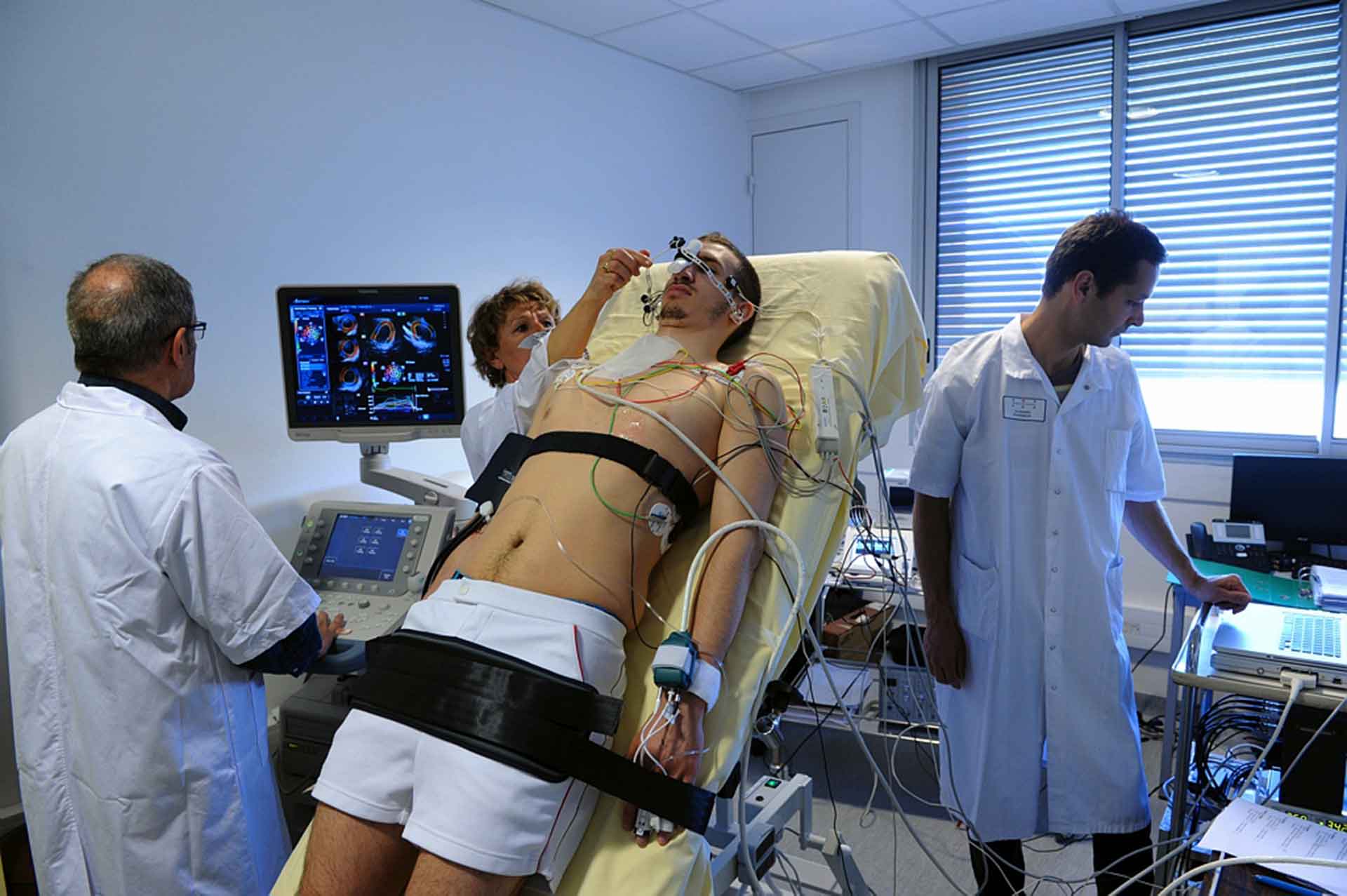
Specific equipment
Depending on the needs of clinical studies, MEDES can equip itself with dedicated resources to carry out specific protocols.
For example, MEDES has installed on its premises a driving simulator (for a study on vigilance when driving), an inverted room (for studying perceptions of position in simulated weightlessness), dermatological equipment (for studying a biological cream), a vibrating platform – photo opposite – (for studying impacts as a countermeasure in simulated weightlessness), etc.
